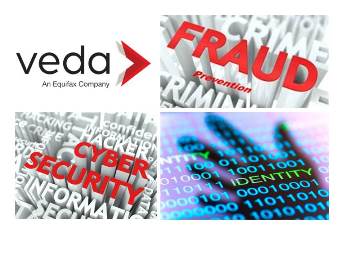 Use of stolen identities in fraud events has risen by 80 per cent in the year to June 2016, with 57 per cent of credit application fraud now occurring online, according to new research. Released recently to coincide with the bi-annual Veda Fraud Focus Group, the 2016 Veda Cybercrime and Fraud Report shows that the volume of reported fraudulent activities climbed by a third.
Use of stolen identities in fraud events has risen by 80 per cent in the year to June 2016, with 57 per cent of credit application fraud now occurring online, according to new research. Released recently to coincide with the bi-annual Veda Fraud Focus Group, the 2016 Veda Cybercrime and Fraud Report shows that the volume of reported fraudulent activities climbed by a third.
Veda’s Fraud Focus Group gathers representatives from Australia’s big banks, credit unions, card companies, international financial institutions, telecommunication companies, remittance companies, law enforcement officials and anti-fraud experts to discuss strategies to combat cybercrime and fraud. Veda’s 2016 Cybercrime and Fraud Report extracts data from Veda’s Shared Fraud Database to offer an understanding of cybercrime and fraud in 2016 and beyond, and propose ways for businesses and consumers to keep one step ahead.
Insights from this year’s data identified the emergence of a surprising upward trend in fraud occurence in bank branches. The Veda 2016 Cybercrime and Fraud Report has also identified five key cybercrime challenges and threats for 2017. Among these threats, Veda believes the CEO fraud, or cyberattacks on C-suite executives, will become particularly prominent in the coming year.
Top five trends in fraud for 2017:
- CEO fraud, or cyber-attacks on C-suite executives, will grow. Techniques such as ‘spear phishing’, where cybercriminals hook their victims with a malware-infected email that appears to be from a trusted individual or business, will increasingly be used in this kind of attack.
- The commoditisation of the tools of cybercrime will also increase. Cybercriminals will look to build their ‘businesses’ by swapping and selling stolen information and prewritten malware, or by offering their skills for hire, on the dark web.
- State-sponsored cyber espionage will become one of the hottest topics of 2017, as foreign cybercriminals re-double their efforts to digitally infiltrate government and related agencies – both with and without the knowledge of their own governing bodies.
- Ransomware will continue to pose a real threat. Cybercriminals will focus their efforts on organisations, like legal firms or doctors’ surgeries, which hold a goldmine of sensitive personal information but are often less secure than many government or private business databases.
- The ‘paradox of protection’ will come to the fore. As people become more aware of cybercrime, many will attempt to protect themselves by taking their personal information and professional verification tools offline wherever possible. However, by reverting back to offline methods, many individuals and organisations run the risk of leaving personal details vulnerable to being stolen from low-security storage and migrated online.
Veda Fraud Focus Group members contribute data and share access to Veda’s Shared Fraud Database, including confirmed fraud events, details used in previous fraudulent applications and methods of fraud.
The Veda 2016 Cybercrime and Fraud Report can be downloaded here.
Source: Veda Press Release






















